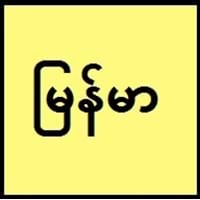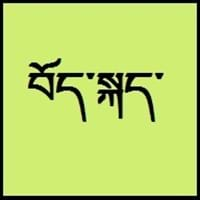Countries
Myanmar
China, Nepal
National Language
Myanmar
Nepal, Tibet
Second Language
Bangladesh, Burma
Not spoken in any of the countries
Speaking Continents
Asia
Asia
Minority Language
Mon
China, India, Nepal
Regulated By
Myanmar Language Commission
Committee for the Standardisation of the Tibetan Language
Interesting Facts
- The naming of people in Burmese is strange. There is no last name, often name is rhymed such as Ming Ming, Mo Mo or Jo Jo.
- It appears as odd language to many people because it has peculiar pitch register, tonal form as language.
- Tibetan dialects vary alot, so it's difficult for tibetans to understand each other if they are not from same area.
- Tibetan is tonal with six tones in all: short low, long low, high falling, low falling, short high, long high.
Similar To
Thai Language
Not Available
Derived From
Pali Language
Not Available
Alphabets in
Burmese-Alphabets.jpg#200
Tibetan-Alphabets.jpg#200
Scripts
Tangut
Tibetan alphabet, Tibetan Braille
Writing Direction
Left-To-Right, Horizontal
Left-To-Right, Horizontal
Hello
မင်္ဂလာပါ (maingalarpar)
བཀྲ་ཤིས་བདེ་ལེགས། (tashi delek)
Thank You
ကျေးဇူးတင်ပါသည် (kyaayyjuutainparsai)
ཐུགས་རྗེ་ཆེ་། (tujay-chay)
How Are You?
နေကောင်းလား? (naykaungglarr?)
ཁྱེད་རང་སྐུ་གཇུགས་བདེ་པོ་ཡིན་པས།
(kayrang kusu debo yimbay?)
Good Night
ကောင်းသောညပါ (kaunggsawnyapar)
གཟིམ་ལཇག་གནང་དགོས་། (sim-jah nahng-go)
Good Evening
မင်္ဂလာညနေခင်းပါ (main g lar nyanayhkainn par)
དགོང་དྲོ་བདེ་ལེགས།
Good Afternoon
မင်္ဂလာနေ့လည်ခင်းပါ (main g lar naelaihkainn par)
ཉིན་གུང་བདེ་ལེགས།
Good Morning
မင်္ဂလာနံနက်ခင်းပါ (main g lar nannaathkainnpar)
སྔ་དྲོ་བདེ་ལེགས། (nga-to delek)
Please
ကျေးဇူးပြု (kyaayyjuupyu)
thu-je zig / ku-chee.
Sorry
တောင်းပန်ပါတယ် (taunggpaanpartaal)
ཀོང་དགས་། (gawn-da)
Bye
နုတ်ဆက်ပါတယ် (notesaatpartaal)
ག་ལེར་ཕེབས་། (kha-leh phe)
I Love You
မင်းကိုချစ်တယ် (mainnkohkyittaal)
ང་ཁྱེད་རང་ལ་དགའ་པོ་ཡོད་ (nga kayrâng-la gawpo yö)
Excuse Me
ဆင်ခြေဆင်လက် ငါ့ကိုအ (Sainhkyaysainlaat ngarko a)
དགོངས་དག བཟོད་དུ་གསོལ། ཐུགས་རྗེ་གཟིགས།
Dialect 1
Arakanese
Central Tibetan
Where They Speak
Bangladesh, India, Myanmar
China, India, Nepal
Dialect 2
Tavoyan
Khams Tibetan
Where They Speak
Myanmar
Bhutan, China
Dialect 3
Intha
Amdo Tibetan
Where They Speak
Burma
China
Speaking Population
Not Available
Second Language Speakers
Not Available
Native Name
ဗမာစကား (bama saka)
བོད་སྐད་ (pö-gay)
Alternative Names
Bama, Bamachaka, Myanmar, Myen, myanma bhasa
Bhotia, Dbus, Dbusgtsang, Phoke, Tibetan, U, Wei, Weizang, Zang
French Name
birman
tibétain
German Name
Birmanisch
Tibetisch
Pronunciation
Not Available
Not Available
Ethnicity
Bamar people
tibetan people
Language Family
Sino-Tibetan Family
Sino-Tibetan Family
Subgroup
Tibeto-Burman
Tibeto-Burman
Branch
Not Available
Not Available
Early Forms
Old Burmese, Middle Burmese, Burmese
Old Tibetan, Classical Tibetan
Standard Forms
Modern Burmese
Standard Tibetan
Language Position
Not Available
Signed Forms
Burmese sign language
Tibetan Sign Language
Scope
Individual
Not Available
ISO 639 6
Not Available
Not Available
Glottocode
sout3159
tibe1272
Linguasphere
No data available
No data Available
Language Type
Living
Not Available
Language Linguistic Typology
Subject-Object-Verb
Not Available
Language Morphological Typology
Analytic, Isolating
Not Available
Burmese and Tibetan Greetings
People around the world use different languages to interact with each other. Even if we cannot communicate fluently in any language, it will always be beneficial to know about some of the common greetings or phrases from that language. This is where Burmese and Tibetan greetings helps you to understand basic phrases in Burmese and Tibetan language. Burmese word for "Hello" is မင်္ဂလာပါ (maingalarpar) or Tibetan word for "Thank You" is ཐུགས་རྗེ་ཆེ་། (tujay-chay). Find more of such common Burmese Greetings and Tibetan Greetings. These greetings will help you to be more confident when conversing with natives that speak these languages.
Burmese vs Tibetan Difficulty
The Burmese vs Tibetan difficulty level basically depends on the number of Burmese Alphabets and Tibetan Alphabets. Also the number of vowels and consonants in the language plays an important role in deciding the difficulty level of that language. The important points to be considered when we compare Burmese and Tibetan are the origin, speaking countries, language family, different greetings, speaking population of these languages. Want to know in Burmese and Tibetan, which language is harder to learn? Time required to learn Burmese is 44 weeks while to learn Tibetan time required is 24 weeks.





